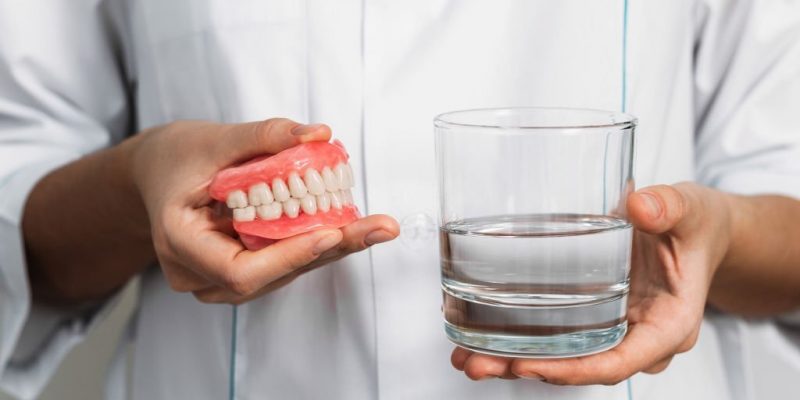Having little or no teeth can leave anyone feeling miserable. However, there is always a positive side to something, and it is dental partials in this case. Though numerous kinds of dental partials are available on the market, removable dentures can be one of the less painful dental procedures.
When visiting professional experts for dentures in Jacksonville, they recommend removable dentures for your lost natural missing tooth. These are the best tooth replacement options for old-age patients who struggle to chew and talk properly. People of any age can ask their dentist to initiate the removable dentures treatment for their natural teeth.
Since you are reading this, you would want to know everything about a removable partial denture. So let us begin with the definition of removable dentures.
What Are Removable Dentures?
Removable dentures cover the part of your missing teeth and the surrounding tissues. Usually, there are two different types of dentures- Partial and complete. Depending on your dental needs, you can opt for either of these dentures. The subsequent section discusses when partial dentures are preferable.
What Is A Partial Denture?
A partial denture comprises replacement teeth for when you lose one or more teeth. These replacement teeth generally attach to a pink gum-like base, mostly plastic. Your dentist will assess your dental situation and customize the partial dentures.
Partial dentures look natural, so they are often difficult to detect. Therefore, some of the best dentists in Jacksonville suggest custom-made partial dentures that will fit perfectly in your mouth. However, in some situations, your dentist might recommend crown implantation to improve their fit in your mouth.
There are variations in partial dentures as well. Different types of partials include the following:
- Cast metal dental partials
- Arcylic flippers
- Flexible dentures
The best professionals might choose one of the types of partial dentures for your tooth replacement. However, you might have to opt for complete dentures if you have lost most of your teeth. Let us get an insight into these kinds of dentures.
What Are Complete Dentures?
Complete dentures are the dentures needed when you lose all your teeth. These are similar to partial dentures. However, the only difference is that they are a complete set of teeth for replacement.
Once you get a denture treatment from your orthodontist, you might have to pay extra attention to caring for your mouth. We will give you a few tips to smoothen your journey through the dental partials treatment.
Partial Denture Care
A dentist for dentures, Jacksonville, shall suggest how to clean your dentures and care for them. Besides, you can follow these tips for maintaining oral health after getting this orthodontic treatment.
- Keep a denture cleaner handy to clean them often. You can look for denture cleansers for upper partial dentures or lower ones.
- Maintain extra caution while you wash or cleanse your dentures. Standing over a towel can be a good idea to protect them if they fall off your hand accidentally.
- Avoid using abrasive mouthwashes or toothpaste for cleaning the dentures. The complex chemicals in these products can damage your dentures.
- You can also use mild soap or any liquid to clean them. It is a good practice to brush your dentures every day. Doing this removes any food particles attached to them. Thus, they stay protected from staining and look clean and brushed.
- There are denture cleaning brushes available in the market. You can get these brushes for extra protection while cleaning them.
- Avoid keeping the denture in moist places as it could alter its shape. In addition, moisture in them can defeat the purpose of your orthodontic treatment.
- Denture cleaners are only for cleaning them. Hence, avoid using them to wash or rinse your mouth.
It’s A Wrap!
Once you get partial teeth, you must visit your dentist from time to time. The mouth’s shape changes as one age, so you might want to check with your dentist whether your existing dentures will serve.
When your removable dentures start to fit snuggly, you can get them replaced by your dentist. It is vital to do so because it can cause you other oral problems, such as sores or infections.
Overall, dentures are the best option for tooth replacement, as being toothless can interfere with your everyday work.

